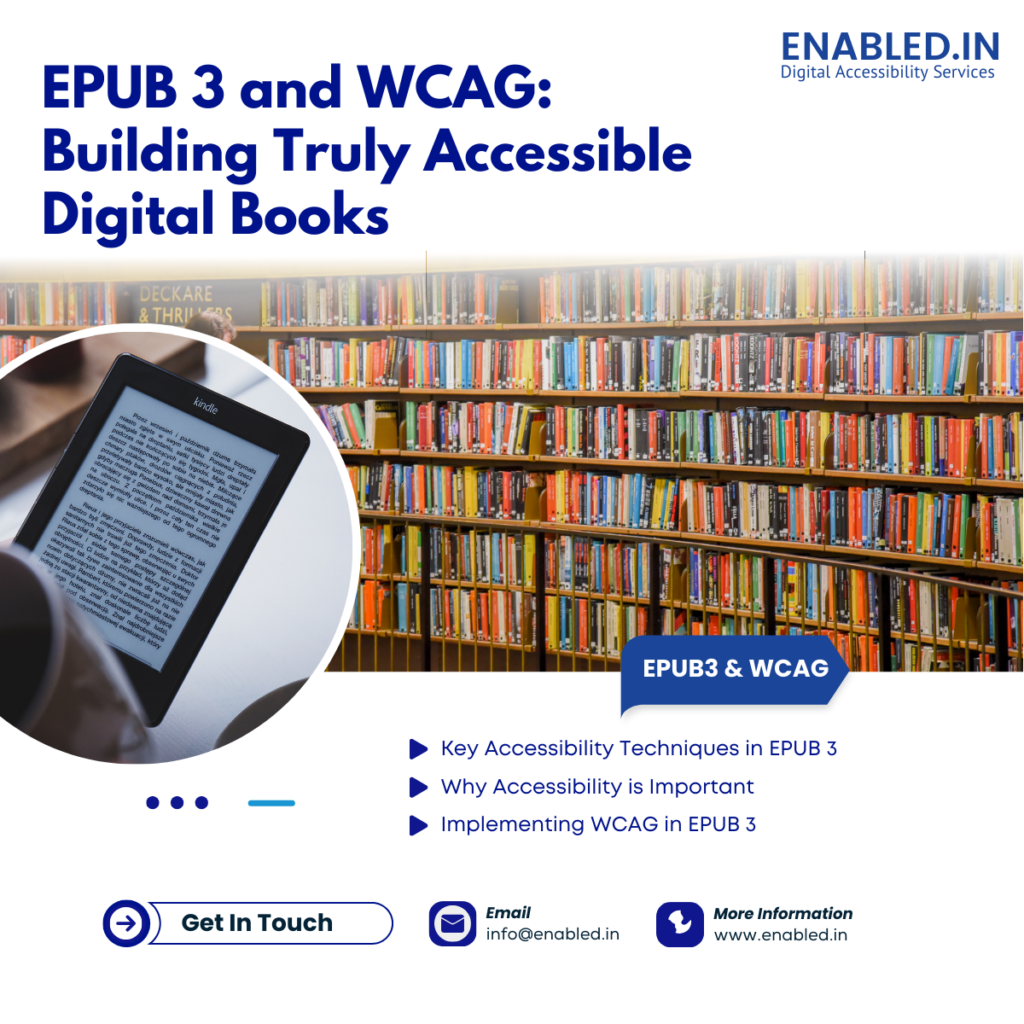Discover how EPUB 3 and WCAG accessibility techniques work together to create inclusive digital books. Learn why accessibility is crucial and how to implement it effectively

Understanding EPUB 3 and WCAG
EPUB 3 is the latest version of the widely adopted ebook format, offering enhanced features like multimedia support and improved semantic markup.
WCAG, on the other hand, is a set of guidelines developed by the World Wide Web Consortium (W3C) to make web content more accessible to people with disabilities.
By combining the capabilities of EPUB 3 with the principles of WCAG, publishers can create ebooks that are not only rich in content but also highly accessible.
Key Accessibility Techniques in EPUB 3
- Semantic Markup: Using proper HTML5 structural elements (e.g., <article>, <section>, <nav>) to define content hierarchy and meaning.
- ARIA Roles and Attributes: Employing Accessible Rich Internet Applications (ARIA) to provide assistive technologies with additional information about interactive elements.
- Image Descriptions (Alt Text): Providing descriptive alternative text for images, allowing screen readers to convey visual information.
- Table Accessibility: Using proper table markup (e.g., <th>, <caption>) to ensure tables are understandable by assistive technologies.
- Navigation and Landmarks: Implementing landmarks (e.g., <nav role=”navigation”>) and clear navigation structures to facilitate easy browsing.
- MathML Support: Using MathML for accessible mathematical equations.
- Audio and Video Accessibility: Providing captions, transcripts, and audio descriptions for multimedia content.
- CSS and Layout: Ensuring content reflows properly and maintaining readability for users with visual impairments.
Why Accessibility is Important
Accessibility is not just a compliance requirement; it’s a fundamental aspect of inclusivity. By making ebooks accessible, we:
- Expand Reach: Reach a wider audience, including individuals with visual, auditory, cognitive, and motor impairments.
- Enhance User Experience: Improve the overall reading experience for all users, not just those with disabilities.
- Comply with Regulations: Adhere to legal requirements and industry standards related to accessibility.
- Promote Equality: Foster a more equitable and inclusive digital environment.
- Improve SEO: Well-structured, semantic markup also helps with Search Engine Optimization.
Implementing WCAG in EPUB 3
To effectively implement WCAG in EPUB 3, publishers should:
- Understand WCAG Guidelines: Familiarize themselves with the WCAG 2.1 or 2.2 guidelines and their relevance to ebook publishing.
- Use Accessibility Checkers: Employ tools like Ace by DAISY to identify and address accessibility issues.
- Test with Assistive Technologies: Test ebooks with screen readers and other assistive technologies to ensure they function as intended.
- Involve Users with Disabilities: Seek feedback from users with disabilities to improve accessibility.
- Provide Training: Educate content creators and publishers on accessibility best practices.
Ready to make your ebooks accessible?
Creating accessible ebooks with EPUB 3 and WCAG is not just a technical necessity; it’s a moral imperative. By prioritizing accessibility, we can ensure that everyone has equal access to information and knowledge.